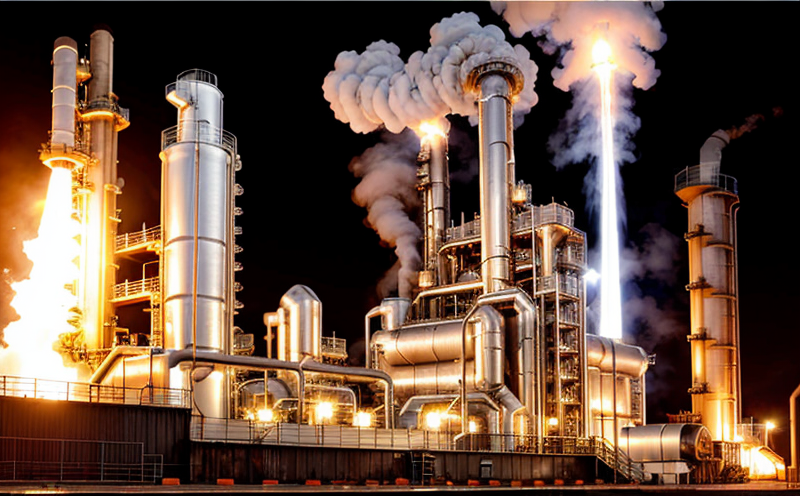ASTM E882 Chemical Analysis of Iron Ores for Process Control
The ASTM E882 standard method is a critical tool in the metallurgical process control testing for iron ores. This service enables precise determination of iron content, as well as other key chemical components such as silica, alumina, and phosphorus within iron ores. Accurate analysis ensures that steel producers can optimize their processes to achieve desired product quality and efficiency.
Iron ore is a crucial raw material in the production of steel. The composition of these ores directly influences the properties and performance of the final steel products. By using ASTM E882, metallurgists can ensure that iron ore inputs are within specified ranges for optimal processing, thereby enhancing product quality and reducing waste.
The process involves several steps: sample preparation, dissolution, analysis, and verification. Sample preparation includes crushing and grinding the ore to a fine powder to ensure uniformity in chemical analysis. The powdered sample is then dissolved in an appropriate acid solution, typically nitric or hydrochloric acid, to release all the metallic elements for quantification.
The analytical methods used under ASTM E882 include gravimetric and volumetric techniques. For iron content determination, gravimetric methods are employed where a known weight of the sample is reacted with a reagent to form an insoluble precipitate. The precipitate is filtered, dried, and weighed again to calculate the percentage of iron in the original sample.
The standard also specifies the use of volumetric analysis for other elements like silica, alumina, and phosphorus. Here, solutions are titrated with standardized reagents until a stoichiometric point is reached, from which the concentration of each element can be calculated.
Accurate chemical analysis through ASTM E882 plays a vital role in process control by providing real-time data that helps operators adjust their processes to meet quality standards. This ensures consistent product output and minimizes variability which could otherwise lead to defects or waste.
The precision of these tests is paramount, as small variations in the chemical composition can significantly affect subsequent stages of steel production. Therefore, compliance with ASTM E882 not only supports process control but also enhances overall operational efficiency by minimizing errors and rework.
For quality managers, this service provides a robust framework to monitor iron ore quality throughout the supply chain. Compliance officers will find it invaluable for ensuring adherence to international standards, while R&D engineers can utilize ASTM E882 data to innovate and refine processes further. For procurement teams, accurate chemical analysis helps in selecting high-quality raw materials that meet specific requirements.
Why It Matters
The importance of precise chemical analysis through ASTM E882 cannot be overstated in metallurgical process control testing for iron ores. Accurate measurement ensures that the steel produced meets stringent quality specifications, which is essential for both consumer safety and industrial efficiency.
- Quality Assurance: Ensures consistent product quality by identifying deviations early in the production cycle.
- Cost Efficiency: Minimizes waste through optimized processing parameters. This reduces costs associated with scrap or substandard products.
- Innovation: Provides data that can be used for continuous improvement and development of new steel alloys.
- Risk Management: Identifies potential risks early in the production process, allowing proactive measures to be taken.
By adhering to ASTM E882, companies not only enhance their competitive edge but also contribute to sustainable practices by optimizing resource use and reducing environmental impact.
Applied Standards
The ASTM E882 standard is widely recognized in the metallurgical industry for its stringent guidelines on chemical analysis of iron ores. This standard ensures consistency across different laboratories, thereby enhancing reliability and reproducibility of results.
The application of ASTM E882 involves multiple steps outlined by the standard itself. These include sample preparation, dissolution procedures, and various analytical methods such as gravimetric and volumetric analyses. Each step is meticulously detailed to ensure that all participants follow the same protocol, leading to uniform test results.
Gravimetric analysis under ASTM E882 involves dissolving the iron ore in acid and reacting it with a specific reagent to form an insoluble precipitate. The amount of this precipitate directly correlates with the quantity of iron present in the original sample. This method is particularly useful for determining the exact percentage of iron, which is critical for process control.
Volumetric analysis involves titrating solutions containing dissolved elements from the ore against standardized reagents until a stoichiometric point is reached. The volume of the reagent required to reach this point allows calculation of the concentration of each element present in the sample. This approach is used for identifying other key components like silica, alumina, and phosphorus.
Compliance with ASTM E882 ensures that all parties involved are using consistent methods, which fosters trust among stakeholders and regulatory bodies. It also facilitates easier comparison between different sets of data generated by various laboratories, enhancing the overall accuracy and reliability of metallurgical testing.
Customer Impact and Satisfaction
- Enhanced Product Quality: Accurate chemical analysis ensures that iron ores meet specified quality parameters, leading to superior steel products.
- Cost Savings: By optimizing processes through precise data provided by ASTM E882, companies can reduce waste and operational costs.
- Improved Efficiency: Real-time monitoring allows for immediate adjustments in the production process, enhancing overall efficiency.
- Risk Reduction: Early detection of potential issues minimizes risks associated with substandard raw materials or manufacturing processes.
Clients benefit from our comprehensive approach to ASTM E882 compliance which not only meets but often exceeds industry expectations. Our rigorous testing methods and unwavering commitment to accuracy have earned us a reputation for excellence in the sector.
We understand that every customer has unique needs, and we tailor our services accordingly to ensure they receive maximum value from their investments in quality control. By leveraging ASTM E882, you can be confident in your decisions regarding iron ore procurement and steel production processes.





